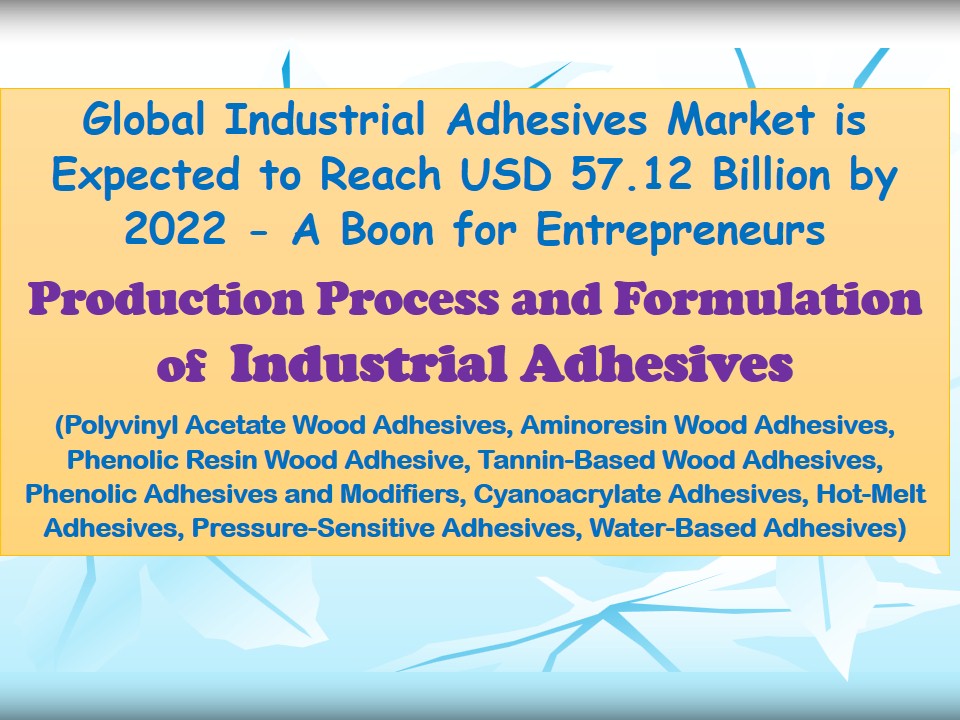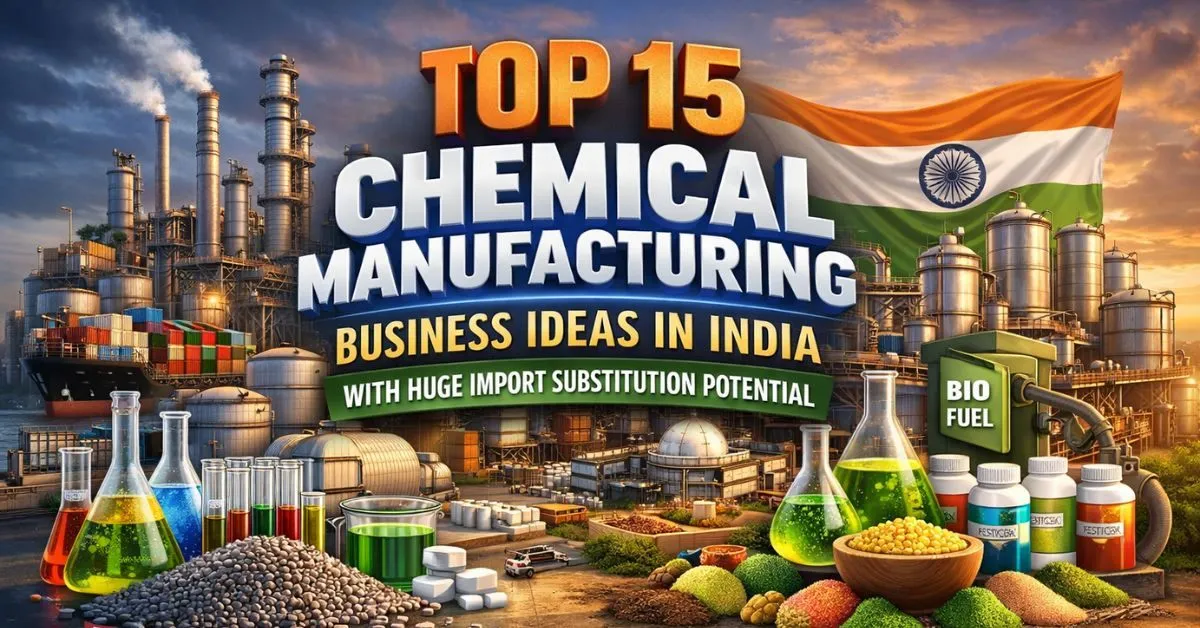
The industrial adhesives market plays a crucial role in modern manufacturing, offering solutions for bonding diverse materials across sectors like automotive, electronics, construction, packaging, and aerospace. Adhesives have replaced mechanical fasteners in many applications, improving strength, reducing weight, and lowering costs. As industries demand more sustainable and high-performance products, the role of adhesives has grown even more prominent in production processes.
Contents
- 1 Growth & Scope of the Industrial Adhesives Market
- 1.1 Key Segments and Product Categories
- 1.2 Manufacturing Process of Industrial Adhesives
- 1.3 Market Trends Shaping the Future
- 1.4 Applications Across Diverse Industries
- 1.5 Challenges in Adhesive Manufacturing
- 1.6 Business Opportunities and Investment Outlook
- 1.7 Environmental Regulations and Sustainability
- 1.8 Conclusion
Growth & Scope of the Industrial Adhesives Market
The global industrial adhesives market is evolving rapidly due to the increasing demand for lightweight materials, automation in assembly lines, and growing environmental concerns. Manufacturers today seek adhesives that can withstand high stress, extreme temperatures, and varied environmental conditions. Furthermore, innovations in polymer science and the availability of eco-friendly options have significantly contributed to market expansion.
See Also : Soy-Based Food
Key Segments and Product Categories
The market includes several adhesive types based on chemical composition and application method. Let’s explore some of the major segments within this fast-growing domain:
1. Acrylic Adhesives
Acrylics are popular for their versatility and strong bonding properties. These adhesives cure quickly and offer excellent resistance to UV and moisture. For this reason, they are widely used in construction, automotive trims, electronics, and signage.
2. Epoxy Adhesives
Known for their superior strength and durability, epoxy adhesives are essential in aerospace, marine, and automotive sectors. They are especially valuable when bonding metals, ceramics, or composites. Moreover, their thermal resistance makes them ideal for high-performance environments.
3. Polyurethane Adhesives
Polyurethane-based adhesives provide flexibility along with structural strength. They are highly effective in bonding dissimilar materials like plastic to metal or glass. Additionally, their shock-absorbing capacity makes them suitable for vibration-sensitive applications.
4. Hot Melt Adhesives
These are thermoplastic adhesives that solidify on cooling. Due to their fast-setting nature and minimal VOC emissions, hot melt adhesives are commonly used in packaging, bookbinding, and textile applications.
5. Silicone Adhesives
Silicone adhesives are ideal for extreme temperatures and offer excellent sealing properties. These are widely used in electronics, automotive gaskets, and medical devices where flexibility and heat resistance are critical.
Manufacturing Process of Industrial Adhesives
The production of industrial adhesives involves chemical formulation, mixing, and packaging. First, raw materials such as monomers, resins, hardeners, plasticizers, and fillers are selected according to the desired adhesive properties. These materials are then blended in reactors under controlled temperatures and conditions. Once the formulation reaches the required viscosity and chemical balance, it is filtered, stabilized, and packaged.
Advanced manufacturing lines now include automation and real-time monitoring systems to ensure consistent quality. In some facilities, robotic arms are also employed for container filling, labeling, and sealing. Moreover, manufacturers must comply with stringent safety and environmental standards throughout the production process.
Market Trends Shaping the Future
Several key trends continue to drive the growth of the industrial adhesives market worldwide. Understanding these can help investors and manufacturers align their strategies with future demands.
Green Adhesives and Bio-Based Formulations
With increasing environmental regulations, there is a noticeable shift toward bio-based adhesives derived from starch, soy protein, and lignin. These options not only reduce dependence on fossil fuels but also lower carbon footprints. Governments and industries alike are pushing for greater adoption of such eco-friendly solutions.
Lightweight Material Bonding
As transportation industries focus on fuel efficiency and emission reduction, the use of lightweight composite materials has surged. Adhesives that can bond metals to plastics or carbon fiber to aluminum are now in high demand. This shift has opened new avenues for innovation in the industrial adhesives market.
Smart Adhesives
Next-generation adhesives are being developed with built-in sensors that can detect stress or fatigue. These smart adhesives are expected to revolutionize critical sectors like aerospace and medical device manufacturing.
Digitalization and Automation
The integration of IoT, AI, and robotics in adhesive application systems is improving speed and accuracy. Automated dispensers now deliver precise amounts of adhesive, reducing waste and improving bond strength consistency.
Applications Across Diverse Industries
Industrial adhesives are now indispensable in multiple sectors. Their role goes far beyond simply bonding parts — they improve design flexibility, enhance safety, and contribute to cost savings.
Automotive
Modern car assemblies rely heavily on adhesives for bonding panels, windshields, and interior trims. Adhesives also reduce vehicle weight and enhance crash resistance. In electric vehicles, adhesives are used to bond battery modules and heat sinks, ensuring durability and safety.
Electronics
Printed circuit boards (PCBs), mobile phones, and home appliances all require adhesive solutions for insulation, shock absorption, and sealing. As devices become smaller and more complex, the demand for precise and efficient bonding agents increases.
Packaging
Adhesives in the packaging industry are essential for sealing cartons, labeling, and laminating films. Hot melt adhesives are particularly popular due to their fast-curing nature and ability to work on different surfaces.
Aerospace
Aircraft manufacturing requires adhesives with high resistance to temperature extremes, pressure changes, and chemical exposure. Epoxy and polyurethane adhesives are frequently used in assembling fuselage parts, wings, and interior panels.
Construction
In construction, adhesives are used for flooring, paneling, insulation, and structural glazing. They provide long-term durability while allowing design innovation in architecture and infrastructure projects.
Challenges in Adhesive Manufacturing
Despite the rapid expansion, the industrial adhesives market faces certain challenges. One major issue is regulatory compliance. Many countries have imposed restrictions on volatile organic compounds (VOCs), forcing manufacturers to reformulate products or adopt cleaner processes.
In addition, the growing demand for multifunctional adhesives requires constant research and development. This often means high R&D costs and extended time-to-market for new products.
Moreover, maintaining consistent performance across varying substrates and environmental conditions remains a technical hurdle for formulators. Continuous innovation, pilot testing, and close collaboration with end-users are essential to overcome such challenges.
Business Opportunities and Investment Outlook
Given its versatility and broad industrial applicability, the industrial adhesives market presents immense business potential. Startups can focus on niche formulations like food-grade adhesives or thermal-conductive adhesives for electronics. Established manufacturers may expand through vertical integration — for example, by developing in-house dispensing systems or offering customized solutions.
Export opportunities are also promising, especially in developing regions where industrial infrastructure is expanding rapidly. Partnering with OEMs and contract manufacturers can provide consistent order volumes and stable revenue streams.
Those planning to enter this sector must consider factors such as raw material availability, regulatory frameworks, and end-user demands. Building strong technical teams and investing in R&D will be critical to long-term success.
Environmental Regulations and Sustainability
The push toward greener production has led to the introduction of water-based, solvent-free, and UV-curable adhesives. These not only meet environmental guidelines but also improve worker safety and reduce energy costs. Brands promoting sustainable adhesives are more likely to attract eco-conscious customers and government contracts.
Additionally, adhesive manufacturers are encouraged to develop recyclable or compostable packaging for their products. Such initiatives strengthen brand image and help companies align with global sustainability goals.
See Also : Education Sector
Conclusion
In conclusion, the industrial adhesives market offers vast opportunities across sectors, backed by evolving technology and changing material preferences. While challenges related to regulation and formulation persist, the ongoing focus on sustainability, innovation, and automation will continue to drive growth. Entrepreneurs, manufacturers, and investors who understand these dynamics and adapt accordingly will find great success in this ever-expanding industry.














